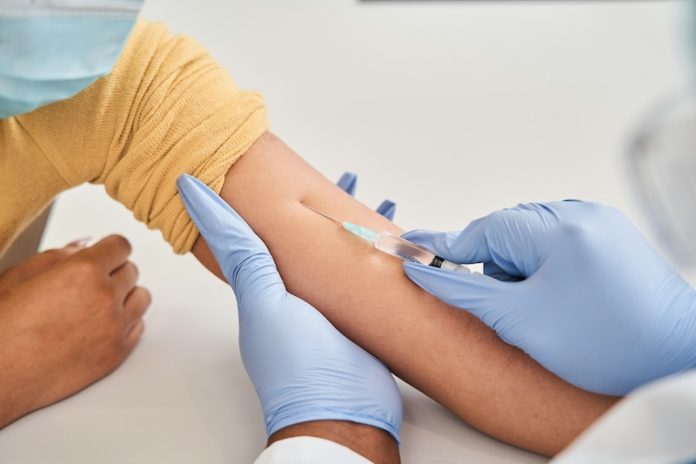
Shingles, often recognized for its painful rash, is caused by the varicella-zoster virus—the same virus responsible for chickenpox. After recovering from chickenpox, the virus lies dormant in the body, potentially reactivating years later as shingles.
This condition is particularly common among older adults and brings more than just discomfort; it significantly increases the risk of heart attacks and strokes, especially in the first month after the virus reactivates.
Recent findings have underscored the severity of shingles when the virus reactivates along a facial nerve, potentially tripling the risk of stroke.
This alarming discovery has highlighted the importance of the shingles vaccine, not only for preventing the characteristic rash but also for its potential to save lives by reducing serious cardiovascular and cerebrovascular events.
James Mbinta, the lead researcher, has emphasized that the benefits of the shingles vaccine extend well beyond alleviating skin discomfort. It plays a crucial role in decreasing the risks of heart attacks and strokes shortly after vaccination.
This was revealed through an analysis of hospital data which compared the rates of hospitalization for heart-related issues in two periods following vaccination.
The study involved 278,375 adults, primarily aged 70 or older, in New Zealand. It showed a significant decrease in hospitalizations for stroke and heart attack in the six weeks following vaccination, suggesting the vaccine could halve the risk of these conditions early on.
Colin Simpson, another researcher involved in the study, noted that these findings align with similar studies from Australia, reinforcing the vaccine’s beneficial impact on older adults.
Furthermore, Mbinta’s previous research indicated that the shingles vaccine also reduces the chances of hospitalization due to nerve pain, a common and severe consequence of shingles.
Considering that about one in three people will experience shingles in their lifetime, with the likelihood increasing with age, vaccination becomes a critical preventive measure for those 70 and older.
Opting for the shingles vaccine is about more than avoiding a painful rash—it’s about protecting oneself from the serious risks of heart attacks and strokes. It represents a significant advancement in promoting heart and brain health among older adults.
By reducing these risks in the weeks following vaccination, the shingles vaccine offers a powerful tool for enhancing overall health and well-being for those at risk.
This preventive measure should be considered carefully and discussed with a healthcare provider to weigh the benefits against any potential risks.
The shingles vaccine not only provides relief from immediate symptoms but also serves as a vital strategy in the broader fight against serious health complications associated with this condition.
If you care about stroke, please read studies about how to eat to prevent stroke, and diets high in flavonoids could help reduce stroke risk.
For more information about health, please see recent studies about how Mediterranean diet could protect your brain health, and wild blueberries can benefit your heart and brain.
Copyright © 2024 Knowridge Science Report. All rights reserved.



